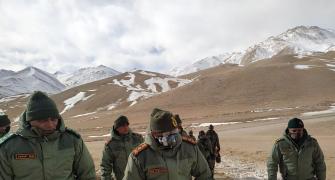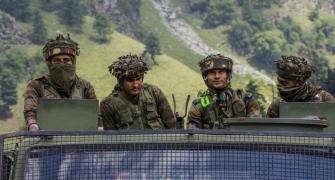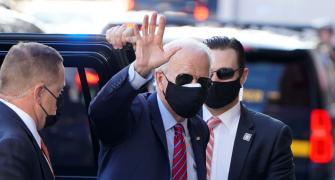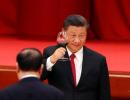India, Taiwan and countries with large numbers of Tibetans, Uyghurs and overseas Chinese will be prominent among those that witness elevated United Front activity, notes Jayadeva Ranade, the distinguished China expert and retired RA&W officer.
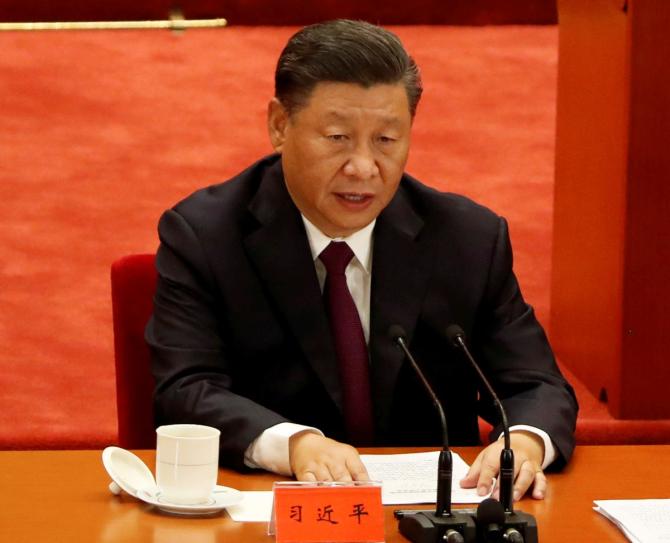
As China tries to re-build and improve ties with the US and alter its negative image around the world, it will use all the levers it possibly can.
What the Chinese Communist party's central committee calls its 'magic weapon' -- the United Front Work Department (UFWD) -- can be expected to play an active role in these efforts.
To arrest the downward spiral in ties with the US, Beijing has plans for Chinese Politburo member and former Foreign Minister Yang Jiechi to visit Washington and a Chinese trade delegation to follow shortly thereafter.
Further confirming that China will additionally use its influence in business and other non-official areas, Chinese President Xi Jinping on January 6 wrote to Howard Schultz, honorary chairman of the board of directors at the Starbucks Corporation -- which has well over 4,000 retail outlets in China -- emphasising that China will 'provide a broader space for companies from all over the world, including Starbucks and other American companies, to develop in China'.
Xi hoped that 'Starbucks will make active efforts to promote Sino-US economic and trade cooperation and the development of bilateral relations'.
Well informed Chinese academics have separately spoken in recent months of using their influence with big corporations and prominent figures on Wall Street to influence the new Biden administration.
The UFWD has stepped up its activities in the past couple of years. Always a shadowy but important arm of the Chinese Communist party's central committee, the UFWD has got re-energised with Xi Jinping's ascent to power.
Responsible for intelligence and influence operations, establishing and maintaining contacts with non-party and foreign entities, and China's ethnic minority nationalities, the UFWD functions in China and abroad.
During the years it was struggling to capture the power and become China's sole ruling party, a number of the Communist party's founding and early cadres used a nom-de guerre and worked 'underground" for the party's cause for many years.
Many died without disclosing their real names, which were revealed only when their relatives came for the funeral or their obituaries were published! A prominent recent example was the case of former Communist party general secretary Zhao Ziyang who died in 2005. Zhao Ziyang's real name was Zhao Xiuye!
Xi Jinping doubled the budgets and personnel strength of the UFWD and China's ministry of foreign affairs.
The UFWD added six new bureaus to monitor, infiltrate and strengthen: i Xinjiang affairs; ii. new social strata individuals/urban professionals and elites; iii. Overseas Chinese; iv. intelligence and propaganda networks in foreign countries; (v) management of religious schools; and vi. specific religions within China.
The $6.6 billion allocated for an international propaganda offensive are also at the disposal of the UFWD as are the Confucius Institutes set up under China's ministry of education in 2014.
On January 5, 2021, the Communist pary's central committee issued a circular confirming revised regulations for the UFWD comprising 14 chapters and 61 articles, which were approved at a politburo meeting in November 2020.
You Quan, head of the UFWD and member of the Central Committee, said the circular prominently reflect the 'party's centralized and unified leadership in united front work'.
Among the revised regulations are new chapters on 'United Front Work of new Social Strata' and on 'Overseas United Front Work and Overseas Chinese Affairs Work'.
The latter chapter emphasised 'maintaining and promoting China's reunification, realising the great rejuvenation of the Chinese nation, enhancing the friendly cooperation and exchanges between the Chinese people and the people of the world, and promoting the building of a community of human destiny.'
One of the 61 articles dealt solely with Taiwan and said the United Front would 'Continuously promote the process of peaceful reunification of the motherland and realise the great rejuvenation of the Chinese nation with one heart'.
You Quan explained (January 6) that the revised regulations are of 'great significance' and 'will strengthen the party's centralized and unified leadership over the united front, consolidate and develop the most extensive patriotic united front, and unite efforts to build a modern socialist country and realize the Chinese Dream of the great rejuvenation of the Chinese nation'.
An important backdrop for the promulgation of the revised regulations for the United Front is the tension in the Sino-US relationship.
While China perceives it has a window of opportunity to ease tensions with the new Biden administration, Beijing is unlikely to offer any substantive compromises.
The United Front Work Department can be expected to intensify influence operations to ease tensions with the US.
The UFWD already has representatives posted in various Chinese embassies. As China steps up its effort for 'peaceful reunification of the motherland' and to 'realize the great rejuvenation of the Chinese nation', the United Front will have a larger role.
It will step up its activities and operations and probably enhance the personnel strength of its units in countries of interest to China.
India, Taiwan and countries with large numbers of Tibetans, Uyghurs and overseas Chinese will be prominent among those that witness elevated United Front activity.
Jayadeva Ranade, former Additional Secretary, Cabinet Secretariat, Government of India, is the President, Centre for China Analysis and Strategy.
Feature Presentation: Rajesh Alva/Rediff.com

